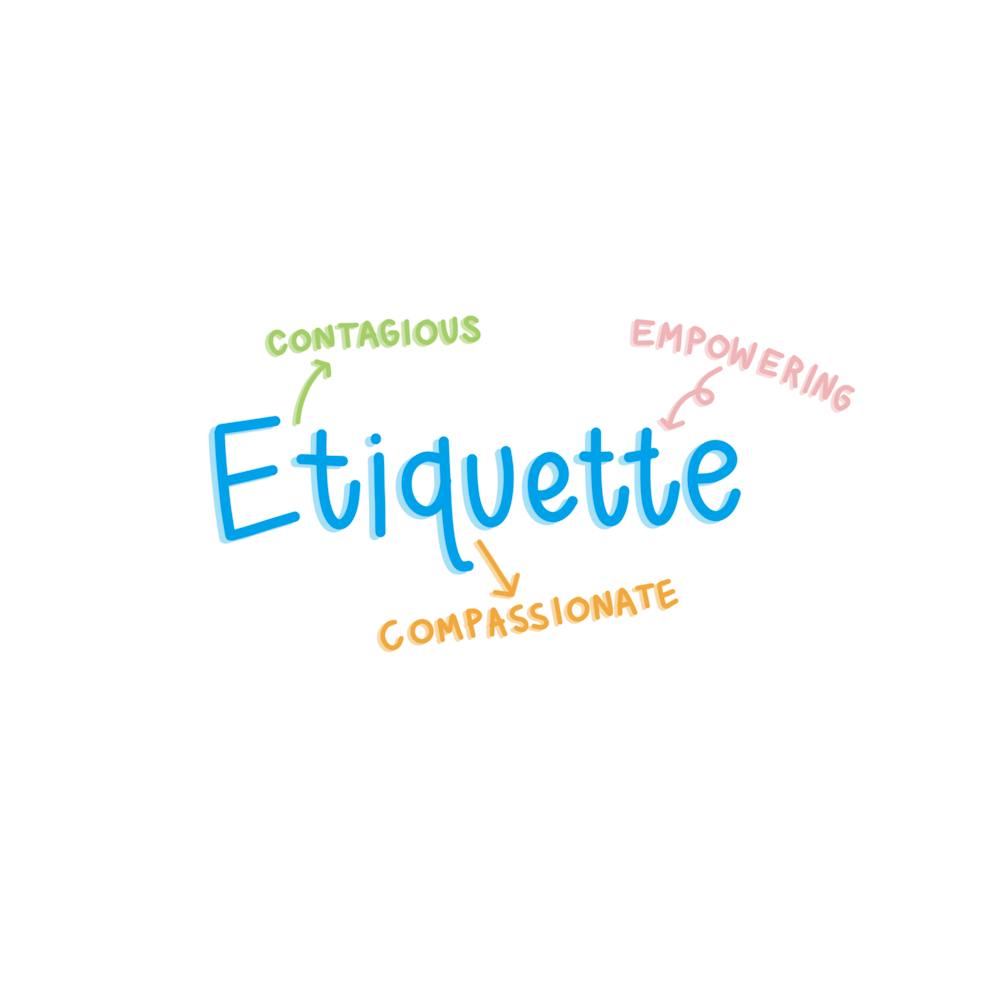Upon coming to Auburn in the fall of 2021, I quickly realized there were no other students around me with walkers. No one else looked, talked or walked like me. I felt out of place on a campus so many describe as "home."
In 2019, I was diagnosed with a rare, neuromuscular disease called Friedreich Ataxia that affects about one in 50,000 people in the United States. Not only would I likely be the only one at Auburn with it, I'd be one of few in the state of Alabama.
I've never had a typical experience at Auburn, but while doing this series on student etiquette, I've found out I'm crazy to assume I'm alone in that feeling. Etiquette matters because there are so many students who you might not know that have student experiences wildly different than yours.
My experience at Auburn often looked like using my friends' arms to walk up stairs, desperately searching for a handicap parking spot and speeding through campus on a JAUNT golf cart. I got used to the surprised looks I received when I rolled into class on the first day of the semester with a walker and then, especially, when I began using an electric wheelchair due to disease progression.
"I believe in the human touch, which cultivates sympathy with my fellow men and mutual helpfulness and brings happiness for all," the Auburn Creed reads.
My student experience isn't the only one that stands out from the standard of what's "normal," as shown throughout this series. Students should be aware of who their "fellow man" is and how they can make Auburn a better place for others. Without doing so, the Auburn Creed is unachievable.
Without etiquette, it is impossible to cultivate a welcoming campus environment for students whose backgrounds are unfamiliar. Empathy is irrelevant if it isn't garnered for people who stand alone or stand in the minority.
Just like Active Minds Club secretary Christian Lomack said, you can't understand people without interacting with them. Although it often means going outside your comfort zone, you will find that other people are not as different as your eyes told you they were.
"With a lot of the bigger human rights issues, I think connection is the biggest issue," Lomack said. "Like, talking to people that are different from you. Speaking to them and finding out what their personal experiences are like, you know, 'What's their day-to-day?' Everybody's day-to-day is different, but it might not be entirely different from yours."
Through the four pieces I wrote for this series, the importance of etiquette made itself abundantly clear to me. In hopes of passing the sentiment along, here are some takeaways I compiled from all of the interviews I did for this series that display the importance of etiquette on a college campus.
Etiquette is empowering
I came to Auburn thinking I didn't fit in on a major university campus like Auburn. What was I doing going to class alongside people who were notable athletes, Greek Life members or social butterflies? Everyone else seemed like they had their piece to the puzzle; they knew what they were doing.
It took people who saw my value and treated me like any other student to help me discover a sense of belonging at Auburn.
Someone treating you with proper etiquette changes the way you see yourself and the rest of the student body. It sends the message that you matter, and it shows that people care about you in particular. That alone is enough to change someone's college experience.
“It really is okay to ask [questions about someone's disability],” said Emily Hrabovsky, master’s student in clinical rehabilitation counseling and Office of Accessibility practicum student. “Nine times out of ten, the person will feel like: ‘Wow, you care about me and my humanness enough that you ask and want to know and want to learn.’”
Etiquette shows compassion
Compassion is defined by Merriam-Webster Dictionary as "sympathetic consciousness of others' distress together with a desire to alleviate it."
When another student is facing a hard situation, having proper etiquette is showing them that you are concerned with the matter and, therefore, are willing to change your actions to help spark change. Etiquette helps people see that they're not alone in whatever they are facing.
That means not being a bystander but, instead, being a stakeholder in the welfare of others.
"The biggest thing is [speaking up] when you see something wrong,” said Nora Heeney, junior in nursing and co-president of the Active Minds Club. “Instead of pointing the finger, maybe just offering a different perspective... Also, just getting rid of our picture of ‘normal’ and seeing that we’re all carrying something. We were never meant to carry that alone.”
Etiquette becomes contagious
Even when it seems insignificant, how you treat others matters. And the kindness you pass on might just come back to you.
Aiden Anderson, junior in computer science, has a rare disability that causes vision loss. An act of kindness from one of his biology professors to help him read the questions during a game of Kahoot led to mutual respect, and even a friendship, between them.
"He saw me zooming in on my device and kind of struggling, maybe even some frustration, and then he just kind of leans over and starts reading the questions to me and reads the answers," Anderson said. "In the meantime, it strikes up a conversation, then we're laughing. Now, I'm inviting him to movie nights. You know, you'll make friends that way."
Etiquette has the power to create a tighter bond among the Auburn Family – one that is passed on from one generation to the next for years to come.
Do you like this story? The Plainsman doesn't accept money from tuition or student fees, and we don't charge a subscription fee. But you can donate to support The Plainsman.





